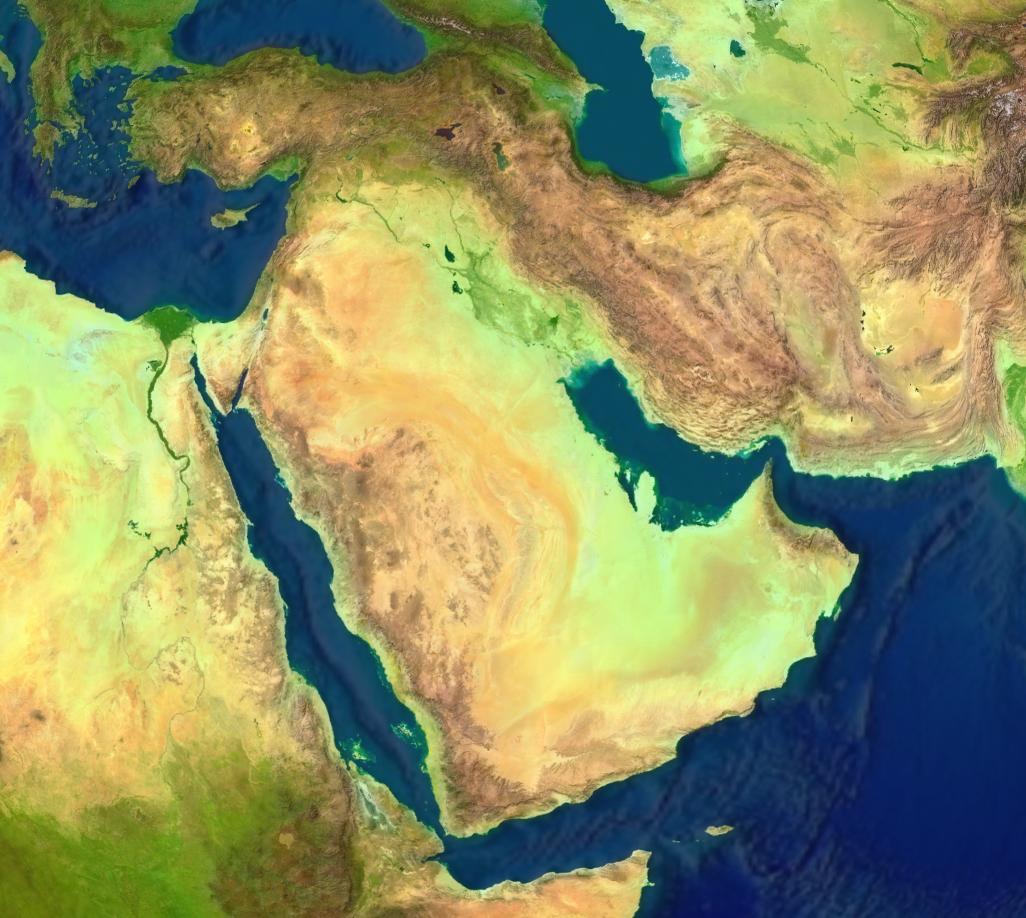
The Obama Administration is in the agenda-setting stage of its Middle East foreign policy. Secretary of State Hillary Clinton's trip to the region was a chance for the top diplomat to get her feet wet. She met with Turkish, Arab and Israeli leaders, as well as numerous civic groups and organizations, all in an effort to get a feel for the realities on the ground and in the minds of the region's inhabitants.
This begs the question. What should the U.S.'s approach be with regards to the world's most volatile and complicated region?
To begin with, let's remember that what we characterize as the 'Middle East' is far from being a geographic, economic, political, social, linguistic, ethnic or religious monolith. On the other hand, the region is bound by a shared history, deep linkages, as well as distinct sets of challenges and opportunities. For this reason, any attempts to over-simplify, or over-complicate, perceptions of the region are bound to backfire.
Having said this, the game of geopolitics will not stop simply because President Obama may be willing to see the region in an intellectually more honest manner. Nonetheless, it is possible for the U.S. to position itself more favourably vis-a-vis global competitors such as Russia and China without further contributing to regional instability and by securing its fundamental interests such as access to energy.
This can be achieved by adopting a strategically flexible approach that maximizes the U.S.'s ability to maneuvre - getting bogged down in Iraq was the worst decision in this regard. Both allies and adversaries must also be given room to maneuver. Adopting a hardline approach towards Iran would not be in the U.S.'s interest. By extending his hand and offering Iran a "new beginning", Obama has calculated that dialogue with Tehran offers the best chance to reach a settlement on its nuclear program as well as striking a grand bargain regarding its role in Iraq, Lebanon and Palestine. Let's remember that it is very unlikely for any peace deal, or even stability, to be achieved between Israel and the Palestinians without Iran's support and that Iran has the ability to make serious problems in Iraq following the relative stability of the past year.
As for U.S. allies such as Saudi Arabia and Egypt, any sign of U.S. flexibility towards Iran will force them to loosen their positions as well. This is good. The U.S. has to find a way to untangle the geopolitical deadlock between Arabs and Iran on one hand, and between Arabs and Israel on the other if it hopes of making progress on the region's most pressing issues. Engagement is the best bet to begin a reversal of years (in some cases decades) of horn-locking by the region's power-players.
Democracy and Economics
It would be fancifull to hope for long-term geopolitical changes that would be favourable to U.S. interests without taking into account the domestic political and economic conditions of Middle Eastern countries.
With regards to democracy promotion, the Bush Administration went after the saddle before the horse. They proselytized about democracy before seriously committing any efforts to economic justice and development in the region. Evidently, the men and women who were crafting policy for George W. Bush forgot history. Remember Germany after World War I? Democracy but no democrats. Angry and humiliated peoples can be dangerous at the ballot box. This is not to argue against democratic promotion - the region sorely lacks it - but to remind people about the imperatives of economic development if radical groups are to be discredited at election time.
It will be difficult to convince the masses about the benefits of democracy if they don't feel economic benefits at the same time. People who argue for one before the other are missing the point, democracy and economic development should not be regarded as mutually exclusive but must support one another from the get go.
Although unlikely in the current economic crisis, the U.S. should seriously consider the strategic imperatives for a Middle Eastern Marshall Plan. For all the money and resources that the U.S. and its allies have spent on military ventures, would spending half that amount on reconstruction, investment, education and job-creation, without of course forgetting democracy building, not bring more value added? Opening new markets for Western companies by raising the standard of living and thus of consumption of millions of Middle Easterners would not only benefit both sides economically, but severely undermine the influence of radicals and extremists.
I realize that my comments at this point are very crude and poor on detail, but I sincerely believe in the need to rethink the fundamentals of the U.S.'s policies towards the Middle East. As the most powerful actor in the international system, Washington can afford to think beyond the narrow-minded geopolitical interests of weaker states and be an entrepreneur for a better, more prosperous and peaceful Middle East.
No comments:
Post a Comment